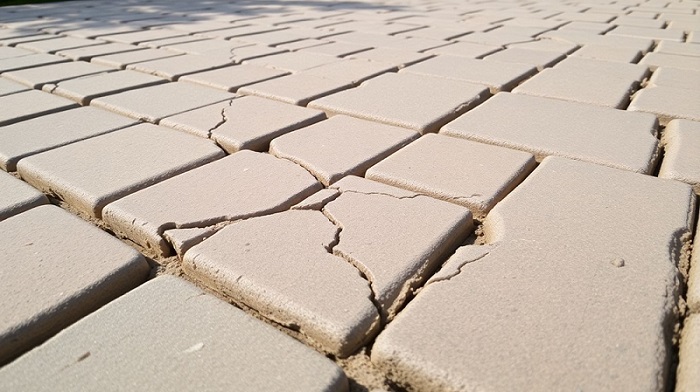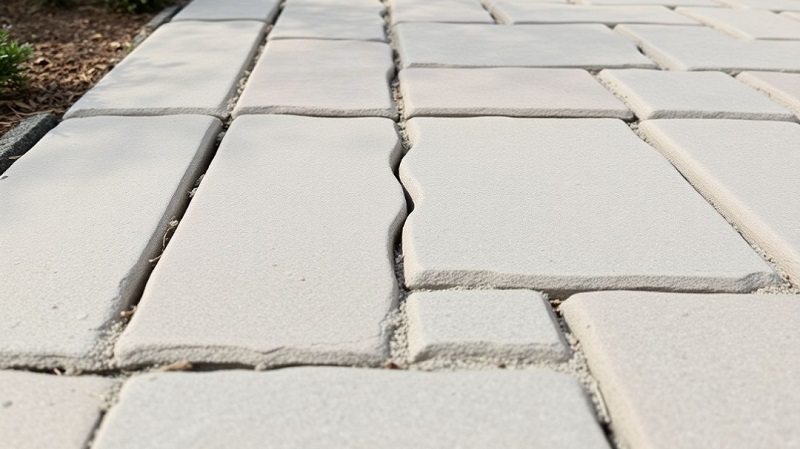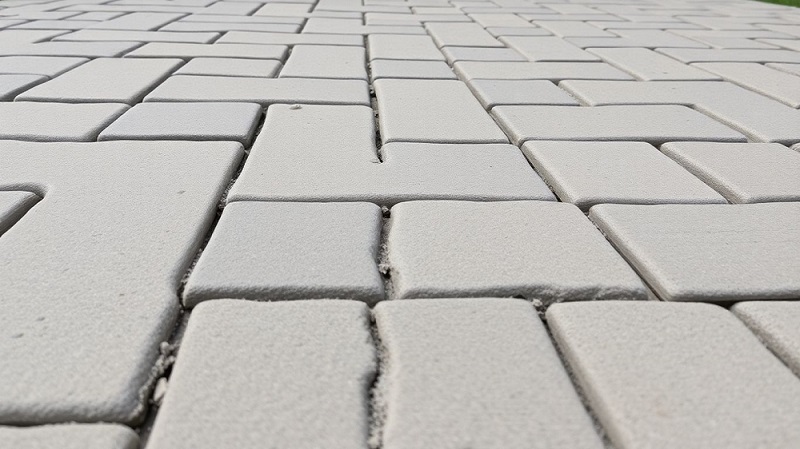Your driveway is one of the first things people see when they visit your home. If it’s looking a bit rough, with cracks or sunken spots, it can really bring down the curb appeal. In Ottawa, where we get all sorts of weather, interlock driveways can take a beating. But don’t worry, fixing them up is usually pretty straightforward. This guide will walk you through why it’s important to keep your Ottawa interlock driveway in good shape and how to tackle common problems.
Key Takeaways
- Regular maintenance and timely repairs can prevent minor issues from becoming major problems with your interlock driveway.
- Common issues like cracks, sinking, and gaps can often be fixed without needing a full driveway replacement.
- Understanding the repair process, whether DIY or professional, helps in making informed decisions for your Driveway.
- Proper base preparation and paver installation are vital for the longevity of your interlock.
- Choosing a qualified contractor is important for quality workmanship and lasting results.
Why an Interlock Driveway Ottawa is Crucial
Living in Canada means dealing with our fair share of weather extremes, and that really takes a toll on your driveway. An interlock driveway Ottawa is a great choice for its looks and durability, but over time, things happen. You might notice cracked pavers, or maybe sections start sinking, creating those annoying uneven spots. Gaps can open up between the stones, letting weeds and moss take hold, which isn’t just unsightly but can also lead to bigger problems down the line.
Ignoring these issues can turn a minor fix into a major headache. For instance, those uneven or sinking sections aren’t just a tripping hazard; they can also indicate a problem with the base layer, which, if left unaddressed, could lead to more widespread damage. Regular interlock driveway repair Ottawa is key to maintaining your driveway’s integrity and appearance. It’s about more than just looks; it’s about preventing further deterioration and costly replacements later on.
Think about it: a well-maintained driveway adds to your home’s curb appeal and property value. When you need driveway paving repair, addressing it promptly can save you money. Whether it’s simple interlock joint repair Ottawa to keep water out or interlock paver replacement Ottawa for a few damaged stones, these tasks are much simpler and cheaper than a full overhaul. Plus, proper maintenance, like interlock driveway sealing, can protect your investment from the elements. It’s really about keeping your driveway functional and looking good year after year, preventing issues like driveway heaving repair Ottawa that can happen when water gets under the pavers and freezes.
We often see driveways that were installed by less experienced contractors, and those tend to show problems sooner. That’s why choosing the right professionals for your interlock paver repair is so important. They know how to properly prepare the base and install the pavers so they last.
Addressing minor issues early on is always the smarter move. It prevents small problems from becoming big, expensive ones that affect the entire driveway structure.
Common Interlock Driveway Problems in Ottawa
Even the best-looking driveways can run into issues over time, especially with the city’s weather. You might notice a few things going wrong that need attention.
Cracked Pavers
Sometimes, individual pavers can crack. This usually happens from heavy weight being put on them, like a big truck, or sometimes just from the freeze-thaw cycles we get here. It’s not the end of the world, but a cracked paver can let water in, which can then freeze and make the crack worse. It’s best to fix these sooner rather than later.
Uneven or Sinking Sections
This is a pretty common sight. You’ll see parts of your driveway where the pavers have sunk down, creating dips. This often comes down to the base layer underneath the pavers. If that base wasn’t put in right, or if it’s washed away over time, the pavers on top don’t have good support. This can be a tripping hazard and also lets water collect.
Gaps Between Pavers
Over time, the sand that’s supposed to be between your pavers can get washed out or blown away. When those gaps get bigger, it opens the door for weeds to start growing, and it makes the whole surface look messy. It also means the pavers aren’t locked in as tightly as they should be.
Weed Growth and Moss
When those gaps appear, they become perfect little homes for weeds and moss. Weeds can push up through the sand and even crack the pavers themselves. Moss likes damp, shady spots, and it can make your driveway slippery. Keeping that jointing sand topped up is key to stopping this.
It’s important to keep an eye on these issues. Addressing them early can save you a lot of hassle and money down the road. For example, dealing with sinking sections might involve re-leveling and resetting pavers, which is a common repair. Ignoring them can lead to bigger problems that are much more expensive to fix.
DIY vs. Professional Interlock Driveway Repair Ottawa
When your interlock driveway in Ottawa starts showing its age, you’ve got a decision to make: tackle it yourself or call in the pros. For minor issues, like a few loose pavers or some weeds popping up, a DIY approach might seem appealing. You can grab some polymeric sand, maybe a tamper, and get to work. It can be satisfying to fix things around the house yourself, and it might save you a bit of cash upfront.
However, driveways are complex systems. The base layer, the edging, and the way the pavers are laid all work together. If you’re dealing with sinking sections or widespread cracking, it often points to a problem with the foundation or drainage. Trying to fix these bigger issues without the right knowledge and tools can actually make things worse. You might end up with a temporary fix that fails quickly, or you could even damage the surrounding pavers.
Here’s a quick look at what each approach typically involves:
- DIY Repair:
- Best for small fixes: replacing a few cracked pavers, sweeping in new jointing sand.
- Requires basic tools: broom, shovel, tamper, and polymeric sand.
- Time commitment: can be time-consuming, especially if you’re learning as you go.
- Risk: potential for making the problem worse if the underlying cause isn’t addressed.
- Professional Repair:
- Handles all issues: from minor cracks to major sinking and drainage problems.
- Access to specialized equipment: for excavation, proper base preparation, and compaction.
- Knowledge of materials: understanding the best sands, base materials, and paver types.
- Warranty: often provides a guarantee on their work, giving you peace of mind.
Think about it like this: fixing a leaky faucet is usually a DIY job. But if your entire plumbing system is backed up, you call a plumber. For your interlock driveway, especially if it’s sinking or has significant cracks, it’s often worth bringing in someone who does this every day. They know how to properly prepare the base, ensure good drainage, and reset everything so it lasts. It might cost more initially, but it can save you a lot of headaches and money down the road by getting it right the first time.
Step-by-Step Guide to Interlock Driveway Sealing Ottawa

So, your interlock driveway isn’t looking its best. Maybe there are cracks, some sections have sunk, or there are annoying gaps. Don’t worry, fixing interlock driveway sealing Ottawa is totally doable. It’s often about getting the base right and keeping those pavers locked in place. Let’s break down how to tackle these issues.
Repairing Cracks and Chips
Small cracks or chips in individual pavers can happen. If it’s just a minor surface issue, you might be able to use a concrete repair caulk or a specialized paver repair product. For deeper cracks or if a paver is significantly damaged, the best approach is usually to replace the paver entirely. You’ll need to carefully pry out the damaged paver, clean the area, and then set a new paver in its place. Make sure the new paver is level with the surrounding ones.
Addressing Sinking or Uneven Areas
This is a common one, often caused by a weak base or poor drainage. If a section has sunk, you’ll need to lift the pavers in that area. Then, you’ll excavate the base material underneath. The goal is to add more gravel and compact it properly to create a stable foundation. Sometimes, just adding a layer of high-performance bedding (HPB) material can help level things out before you put the pavers back. Proper compaction of the base material is key to preventing future sinking.
Filling Gaps and Re-sanding
Over time, the sand between your pavers can wash out, leading to gaps and allowing weeds to grow. This is where polymeric sand comes in. It’s a special kind of sand mixed with polymers that hardens when wet, effectively locking the pavers together. You’ll want to sweep the polymeric sand into all the joints, making sure they’re filled. Then, lightly mist the area with water to activate the polymers. You might need to do a second application to ensure the joints are fully packed. This step really helps stabilize the whole driveway and stops those pesky weeds.
Here’s a quick look at what you might need:
- For Cracks/Chips: Concrete repair, caulk, or replacement pavers.
- For Sinking: Gravel, HPB material, tamp, or plate compactor.
- For Gaps: Polymeric sand, broom, water mister.
Remember, if your driveway has widespread sinking or significant damage, it might be a sign of a larger issue with the base layer. In those cases, a professional might be needed to do a more extensive repair, like excavating and rebuilding the foundation.
Preventative Maintenance for Your Ottawa Interlock Driveway
Keeping your interlock driveway looking good and working right in Ottawa doesn’t just happen. A little bit of regular care goes a long way to stop small problems from turning into big, expensive headaches. Think of it like looking after your car; regular oil changes mean fewer breakdowns, right? Your driveway is similar.
One of the best things you can do is keep it clean. Sweep away leaves, dirt, and debris regularly. This stops organic stuff from breaking down and staining the pavers, and it also helps prevent weeds from getting a foothold. If you see any weeds popping up between the stones, pull them out right away. Don’t let them get established, because their roots can loosen the pavers over time.
Periodically, you’ll want to check the polymeric sand between the pavers. This special sand hardens and locks the stones together, which is super important for keeping things stable and stopping weeds. If you notice gaps where the sand has washed out, especially after heavy rain or snowmelt, you’ll need to top it up. It’s a pretty straightforward job: just sweep new polymeric sand into the joints until they’re full, then lightly mist with water to activate the binding agent.
Don’t let water just sit on your driveway. Proper drainage is key. If you notice puddles forming after rain, it might mean the base material underneath is starting to fail or the pavers have settled unevenly. Addressing these low spots quickly can prevent bigger issues down the line. Sometimes, just adding a bit more sand to the low areas can help, but if it’s a persistent problem, you might need to look at the underlying base.
Here’s a quick rundown of what to keep an eye on:
- Regular Sweeping: Get rid of leaves, sand, and general gunk.
- Weed Patrol: Pull any weeds as soon as you see them.
- Sand Top-Up: Check and refill paver joints with polymeric sand when needed.
- Drainage Check: Make sure water isn’t pooling on the surface.
- Sealing (Optional but Recommended): Applying a good-quality paver sealer every few years can protect against stains and UV damage, making cleaning easier and keeping the colours vibrant. It also helps to lock in that polymeric sand.
Taking these simple steps can really make a difference in how long your interlock driveway lasts and how good it looks. It’s much easier to do a little bit of maintenance now than to deal with a major repair later on.
Choosing the Right Contractor for Interlock Paver Repair Ottawa

When it comes to your interlock paver repair Ottawa, picking the right contractor makes a big difference. You want someone who knows what they’re doing, especially with our local weather. Think about getting a few quotes from different companies. It’s not just about the price, though that’s important. Look at their past work, maybe check out some reviews online, or ask for references.
Here are a few things to consider:
- Experience: How long have they been doing interlock driveway repair in Ottawa? Do they have experience with the specific problems you’re seeing, like sinking sections or gaps?
- Services Offered: Do they handle everything from minor crack repairs to full driveway resurfacing Ottawa? Some might specialize in certain types of work.
- Materials and Warranty: What kind of pavers and base materials do they use? Do they offer a warranty on their work and the materials?
- Communication: Are they easy to talk to? Do they explain the repair process clearly and answer your questions?
It’s a good idea to get a written estimate that breaks down the costs for labor and materials. This helps avoid surprises later on.
Don’t be afraid to ask for a detailed plan of how they’ll fix your driveway. Understanding the steps involved can give you peace of mind and help you compare different contractors’ approaches. A good contractor will be happy to walk you through it.
Remember, a well-done repair will not only look better but also last longer, saving you hassle down the road.
Conclusion
So, we’ve gone over why fixing your interlock driveway in Ottawa is a good idea, what kind of problems pop up, and how you can tackle them yourself or call in the pros. Remember, a little bit of upkeep goes a long way in keeping your driveway looking good and working right.
Taking care of your driveway means it’ll last longer and look better. It’s not just about making it look nice; it’s about protecting your investment. Think about it: a solid driveway adds to your home’s appeal and can even boost its value. Plus, nobody wants to deal with tripping hazards or water pooling where it shouldn’t.
Here’s a quick rundown of what we talked about:
- Address issues early: Don’t wait for small cracks to become big problems.
- Proper base is key: A good foundation prevents sinking and shifting.
- Regular maintenance: Sweeping, re-sanding, and checking for weeds keeps things tidy.
If you’re looking for a reliable way to keep your driveway in shape, consider the benefits of interlocking stone pavers. They’re a solid choice for homeowners. Whether you decide to handle minor fixes yourself or bring in a professional for bigger jobs, keeping your driveway in good shape is a smart move for any homeowner.
Frequently Asked Questions
Why is fixing my interlock driveway important?
Keeping your interlock driveway in good shape is really important. When it starts to sink or crack, it’s not just ugly; it can be a tripping hazard. Fixing it keeps your home looking nice and makes sure everyone can walk and drive on it safely. Plus, it stops small problems from turning into big, expensive ones.
What are the most common problems with interlock driveways in Ottawa?
In Ottawa, we often see driveways get uneven or sink because the ground underneath shifts, especially with our freeze-thaw cycles. Cracks can appear from heavy use or the ground moving. Weeds and moss can grow in the gaps between the stones, making things look messy and potentially loosening the pavers over time.
Can I fix my interlock driveway myself, or should I hire someone?
For small issues like a few weeds or a minor gap, you might be able to do it yourself. But if your driveway is sinking, has lots of cracks, or the base is damaged, it’s usually best to call a professional. They have the right tools and know-how to fix it properly so it lasts.
How do you fix sinking or uneven sections?
Fixing sinking parts usually involves lifting the affected pavers, adding or compacting the base material underneath to make it level again, and then putting the pavers back. Sometimes, we might need to add more gravel to the foundation to make sure it’s stable and won’t sink again.
What’s the best way to fill the gaps between interlock pavers?
The best way to fill the gaps is with polymeric sand. It’s a special kind of sand mixed with polymers that hardens when it gets wet. This locks the pavers together, stops weeds from growing through, and prevents the sand from washing away easily.
How can I prevent my interlock from getting damaged in the future?
Regular maintenance is key! Sweep your driveway often to remove dirt and debris. Re-sanding the joints with polymeric sand every year or two helps keep everything tight. Also, make sure water drains away properly so it doesn’t freeze and damage the base.

